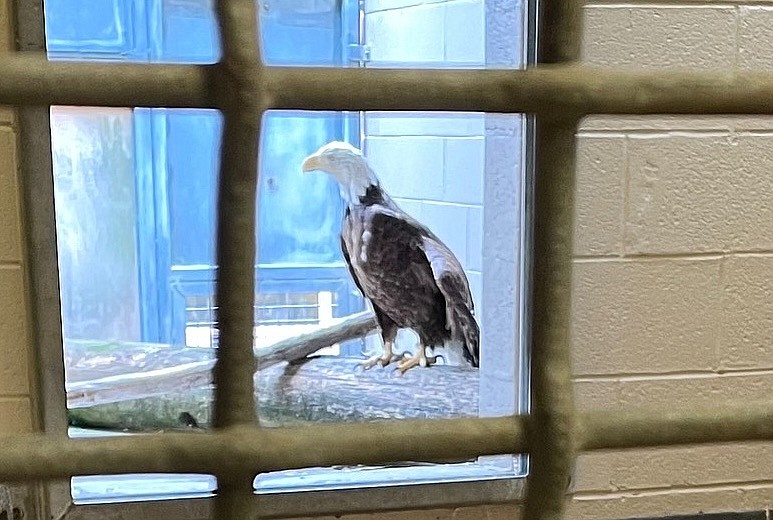A $2,500 reward is being offered by federal wildlife investigators probing the shooting of a bald eagle near Watts Bar Lake.
The eagle, an adult, was shot recently in the Blue Springs Marina area near Kingston, according to a spokesperson from the U.S. Fish and Wildlife Service. Blue Springs Marina is on the east side of Watts Bar Lake near Ten Mile, about 2 miles north of the Meigs County line on state Route 304.
The agency is offering the reward to anyone with information leading to the arrest and conviction of the person or people responsible for shooting the eagle, spokesperson Lanier Clegg said. The Bald and Golden Eagle Protection Act and the Migratory Bird Treaty Act protect bald eagles, and violations of the act carry maximum criminal penalties of up to $100,000 and/or one year in federal prison.
Citing the service's policies on open investigations, spokesperson Vanessa Kauffman declined to answer follow-up questions about the eagle's condition, the time frame of the shooting and what was used to shoot it. The Tennessee Wildlife Resources Agency deferred all questions to the federal agency. An agency photo of the eagle shows it perched on a tree limb inside an enclosure.
The bald eagle is a true North American species breeding and wintering in Alaska, across Canada, in most of the United States and northern Mexico, according to the state wildlife agency's information on the species. Bald eagles were declared the national symbol in 1782, but in the Lower 48 states, the species was threatened with extinction in the 1950s and 1960s due to reproductive failure caused by the pesticide DDT. The pesticide was banned in 1972.
Bald eagle facts
The adult bald eagle is unmistakable with its all-white head and tail. The body is dark brown, and the bill, eyes, legs and feet are yellow. The legs are unfeathered. In flight, the wings are long and broad and held flat while soaring. The sexes are alike in plumage, but the female is approximately 20% larger than the male.
Bald eagles do not reach adult plumage until they are 5 years old. Immature plumage varies with age but includes a mix of dark brown and white scattered throughout the body, while some first-year birds are all brown. During the first four years, the bill is blackish, becoming light at the base, the eyes are brown, while the legs and feet are yellow, like the adult.
— Length: 28-38 inches.
— Wingspan: 6.5 feet.
— Weight: 6.5-14 pounds.
Source: Tennessee Wildlife Resources Agency
Since then, bald eagle numbers have increased sufficiently for the bird to be removed from the federal list of threatened and endangered species in August 2007 thanks to the banning of DDT, habitat protections provided by the Endangered Species Act, and aggressive reintroduction programs conducted by federal and state agencies, according to state information.
The bald eagle was among the first species to be listed under the Endangered Species Act in 1973 and among the first to be delisted, according to the state agency.
(READ MORE: Georgia's bald eagles rebounding from last year's avian influenza outbreak)
There have been recent convictions for killing a bald eagle in Tennessee.
In April, a 44-year-old Tiptonville man was sentenced to two years in federal prison for killing a bald eagle in 2021, according to a statement from the state agency. Jason Perkins was also found in illegal possession of a firearm as a convicted felon. After his release, Perkins will serve an additional three years on supervised federal probation.
Anyone with information concerning the eagle killed near Watts Bar Lake is urged to call the federal agency's Office of Law Enforcement in Tennessee at 615-736-5532 or the state wildlife agency office at 931-484-9571, officials said in the email. Alternatively, tipsters can complete the Wildlife Service's tips form at fws.gov/wildlife-crime-tips.
Contact Ben Benton at bbenton@timesfreepress.com or 423-757-6569.
